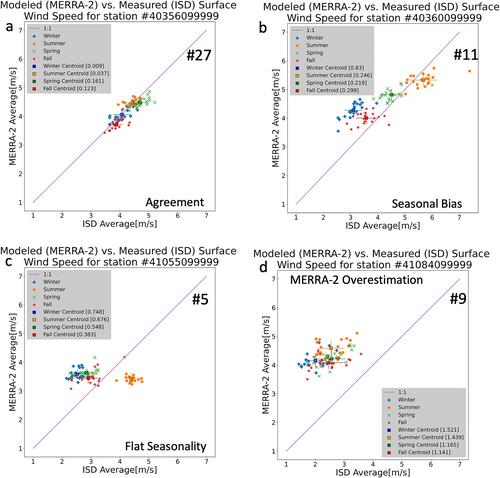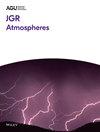Evaluation of 10-m Wind Speed From ISD Meteorological Stations and the MERRA-2 Reanalysis: Impacts on Dust Emission in the Arabian Peninsula
Abstract
Mineral dust is one of the most important aerosols when studying the radiative balance and climate of the planet. There are different dust emission schemes utilized by the atmospheric modeling communities, many of which disagree on basic output quantities such as mass of dust emitted and distribution of mass among size bins. In this work, we examined mineral dust emission from a leading model scheme, the Goddard Chemistry Aerosol Radiation and Transport (GOCART), as utilized in the Modern-Era Retrospective analysis for Research and Applications, Version 2 (MERRA-2) Reanalysis and compared it to dust emissions calculated using wind measurements from ground based weather stations located in the Arabian Peninsula that are included in the National Oceanic and Atmospheric Administration’s (NOAA) integrated surface database (ISD). An intercomparison of 10-m wind speed is shown for the Arabian Peninsula region, differences of the observed and modeled wind field are quantified, and impacts of differences on dust emissions are calculated. This analysis shows 10-m winds in the ISD were generally lower than MERRA-2 winds, which propagated to dust emissions errors. Our estimate of one of the most significant mass impacts in dust emission is 0.178 Tg/year/grid box with a percent change of over 200% to the recalculated dust emissions from MERRA-2. These differences in wind speed propagated to a difference in dust mass emitted by the use of a static source function which aids in scaling the mass emitted by the availability of dust in each grid. Additionally, the magnitude of these differences varies seasonally.


 求助内容:
求助内容: 应助结果提醒方式:
应助结果提醒方式:


